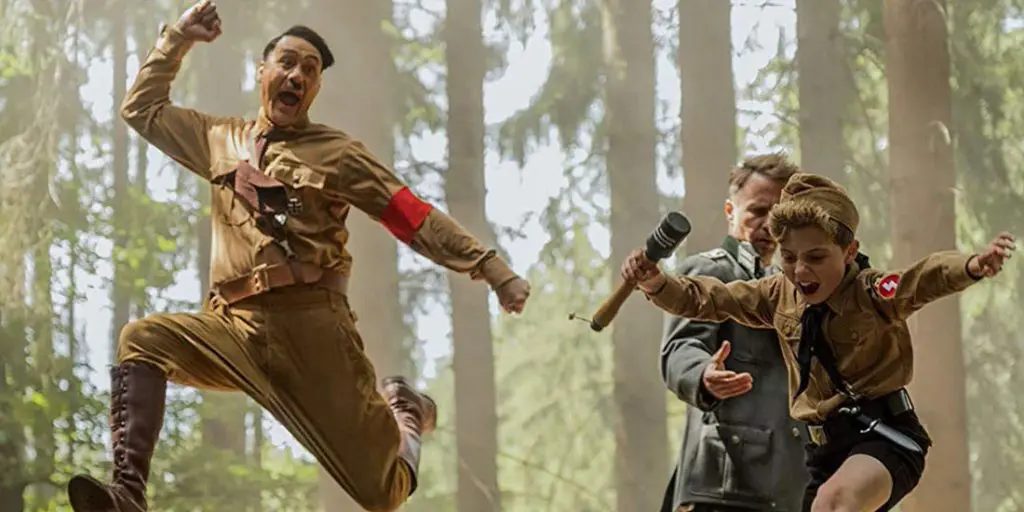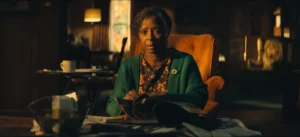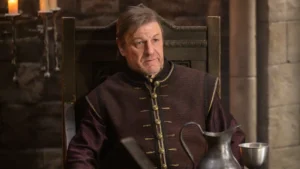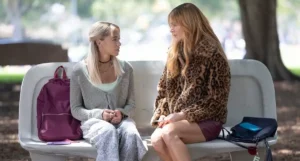Summary
Taika Waititi’s Jojo Rabbit finds its filmmaker in fantastic form, depicting the torment and ridiculous nature of war through the eyes of a ten-year-old wannabe Nazi.
World War II movies, or even movies depicting Adolf Hitler in a comedic fashion, are far from original. Even during and immediately after Hitler’s reign, filmmakers jabbed at the German dictator, satirizing his looks, his ideals, and his hate-fueled decisions. Those were times filled with abhorrence, not laughter, yet filmmakers continue to come back to this period. Taika Waititi’s new film, Jojo Rabbit, can be added to this collection of movies depicting the Nazi regime.
It differs in one major way though: the entire film is seen through the perspective of a ten-year-old boy named Jojo (Roman Griffin Davis), a Nazi fanatic and a boy who we find to be lost in time. Jojo’s imaginary friend is none other than Adolf Hitler himself, played to the nth degree of farce by Waititi.
The intro of the film shows archival footage of Hitler’s Youth giving “Heil Hitler” salutes, a gesture that becomes a running joke throughout Jojo Rabbit. We learn about Jojo’s fanaticism with being a Nazi through his time at a Hitler’s Army camp, in which young German boys and girls are given knives, grenades, and essentially shown how to kill. We’re introduced to Jojo’s “Rabbit” nickname and his best friend Yorki (Archie Yates), who ends up giving one of the funniest supporting performances in quite some time, even though he isn’t a “teardrop expert” as Jojo might imply.
It’s a film that isn’t relying on subtlety to deliver its messaging. Young Jojo spouts hate speech with ease during the first half of the film, and for some, it might be too awful to hear. Jojo and his mother Rosie (Scarlett Johansson) see a group of people hanged in the center of the town. But this is a movie about the way from his perspective, one in which he craves community, seeks validation, and begins to understand love.
The first instance of this comes when the duo of a family sees the bodies. Jojo asks, “What did they do?” with wide-eyed confusion. Rosie replies, “What they could.” Jojo operates most of the film in this confusion. He doesn’t understand the scope of the war, of the Nazi hate, and of the death being inflicted on millions of people. He’s just a boy that is surrounded by Nazis and so he follows suit.
Though the battle between love and hate rages on inside Jojo’s mind, Waititi reminds us every so often that this is still a comedy. Hitler continually offers Jojo a cigarette in times of stress, Sam Rockwell crops up as a glorified daytime-guardian in Captain Klenzendorf, and once Jojo find the slightly older girl hiding in his mother’s room, the laughs and joy start to seep through.
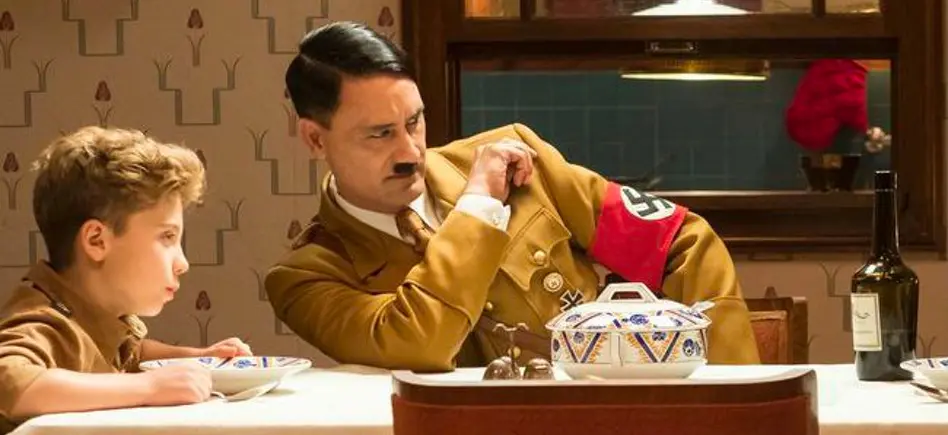
Jojo’s relationship to the girl, and to the Jewish race, alters and melts into one of love. The girl, Elsa (Thomasin McKenzie), presents Jojo with a choice every single day, which can lead to her death or to the crumbling of his Nazi ideals. The choice is obvious, but to a young boy without a father, and who soon loses his mother, it’s all confusing and difficult. He’s processing the war, the compounding losses at a different speed, still learning how to tie his own shoes.
Though the film does provide some hilarious moments and a few ridiculous scenes, it thrives in its tenderness. The dialogue is straight and to-the-point, and it doesn’t have to be anything else. We listen in on conversations between Rosie and Elsa, Rosie and Jojo, and Elsa and Jojo, all combinations of our three main characters. Each conversation adds to the movie’s sentimentality, its message of goodness, and its affinity for dancing in times of joy.
The performances are all sweet, committed, and full of heart. Davis and McKenzie shine as Jojo and Elsa, while Johansson gives us reason to be optimistic through the first half of the film, which is largely filled with hate speech by a boy that feels abandoned.
Jojo Rabbit isn’t flawless but like its main character, it’s sweet, funny, and brimming with love to share. It’s a film about a confused and impressionable little boy that is finding himself, fighting an inner and outer war, learning to dance, and experiencing butterflies in his stomach for the first time.
Jojo Rabbit can be boiled down to one line of sentiment, a recycled yet affectionate line spoken by Johansson to young Jojo, “Love is the strongest thing in the world.”

